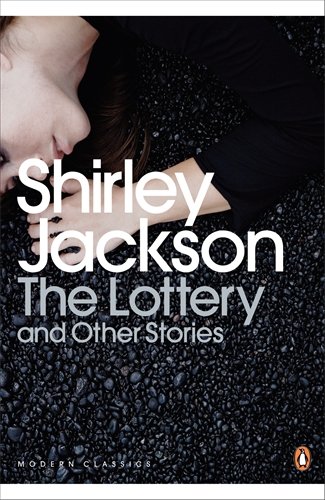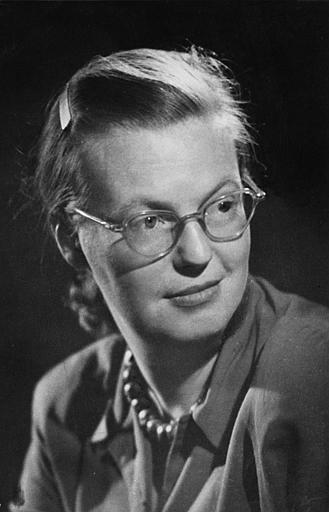
photo © Andrea Skerlavaj, 2011
by Hayley N Jones
When I first became serious about writing short stories and conducted some online research, I found that ‘The Lottery’ by Shirley Jackson kept appearing on ‘must-read’ lists. I’m always sceptical about these lists – for every potential diamond, there is usually a lot of coal to shovel aside – but I’ve always been a conscientious student too, so I sought out the stories that were the most recommended. I enjoyed many of them, but ‘The Lottery’ is the only story that haunts me still. Its brilliant subtlety draws me into a world that is both horrifying and horribly like my own.
The understated opening both foreshadows and belies the conclusion. It is a beautiful day and there is to be a lottery for the villagers. Children chatter, play and collect stones. Yet this portrayal of idyllic innocence has dark undertones: ‘the men […] stood together, away from the pile of stones in the corner, and their jokes were quiet and they smiled rather than laughed.’
 Jackson combines the rhythm of her words with mundane observations, lulling the reader with a sense of reassurance while simultaneously building suspense. ‘The people had done it so many times that they only half listened to the directions; most of them were quiet, wetting their lips, not looking around.’ There is nothing strange, in itself, about this sentence, but in the context of the villagers waiting for a lottery, this behaviour is instantly ominous.
Jackson combines the rhythm of her words with mundane observations, lulling the reader with a sense of reassurance while simultaneously building suspense. ‘The people had done it so many times that they only half listened to the directions; most of them were quiet, wetting their lips, not looking around.’ There is nothing strange, in itself, about this sentence, but in the context of the villagers waiting for a lottery, this behaviour is instantly ominous.
The banality of the setting contrasts with the mystery it evokes. Why is it necessary for all members of the community to be present? Why is the drawing of lots surrounded by such sobriety? Jackson weaves clues into the description of the traditions surrounding the lottery. ‘Mr Graves […] greeted Mr Summers gravely’, while Old Man Warner defends the lottery when it is mentioned that other villages have stopped having lotteries, reiterating an adage, ‘Lottery in June, corn be heavy soon’, and Mrs Dunbar’s son has to ‘get ready to run tell Dad’. The full weight of these clues can only be determined upon rereading the story.
‘The Lottery’ grows richer and more intense with every subsequent reading. Jackson’s understated prose positions the reader so that they observe and accept the unfolding events. By the time it’s clear what is happening, the plot has gained momentum and must continue to its terrific (in all senses of the word) conclusion.
The nature of the lottery is revealed with a simple observation: ‘Although the villagers had forgotten the ritual and lost the original black box, they still remembered to use stones.’ Mrs Hutchinson is not a lucky winner, but a human sacrifice.
Jackson emphasises the horror of the community killing one of its own by noting that someone gives Davy Hutchinson some stones, so he can participate in murdering his mother. Mrs Hutchinson still protests, “it isn’t fair, it isn’t right”, as she is stoned by her family, friends and neighbours.
The most terrifying aspect of ‘The Lottery’ is that it mirrors reality. My instinct is to criticise the villagers for accepting a barbaric tradition with minimal questioning, but I can think of examples from my own life where I have behaved in a similar way; I have kept quiet when faced with the unacceptable behaviour of someone in authority. I can point to numerous examples in our world — contemporary and historical — that are just as extreme, sometimes more so, in their outcome as ‘The Lottery’. Jackson has not written a story about ignorant people clinging to an outdated practice, she has written a modern parable that can be used to examine ignorance and hypocrisy in our own world.
 Yet Jackson presents this, too, with great subtlety. The narration remains distant and objective throughout the story; she neither judges nor analyses the characters. Even as ‘Tessie Hutchinson shouted to Mr Summers, “You didn’t give him time enough to take any paper he wanted. I saw you. It wasn’t fair!”’ Jackson limits the responses to Mrs Delacroix telling her to ‘Be a good sport’ and Tessie’s husband saying, ‘Shut up’. The narrator makes no comment on either Mrs Hutchinson or the other characters.
Yet Jackson presents this, too, with great subtlety. The narration remains distant and objective throughout the story; she neither judges nor analyses the characters. Even as ‘Tessie Hutchinson shouted to Mr Summers, “You didn’t give him time enough to take any paper he wanted. I saw you. It wasn’t fair!”’ Jackson limits the responses to Mrs Delacroix telling her to ‘Be a good sport’ and Tessie’s husband saying, ‘Shut up’. The narrator makes no comment on either Mrs Hutchinson or the other characters.
In my own writing, I struggle to find such discipline. I am frequently overcome with the urge to explain my plot and psychoanalyse my protagonists. But Jackson provides a masterclass that demonstrates how a story can be more powerful when it is succinct and unobtrusive.
However, ‘The Lottery’ also demonstrates that a cool, distant narrator need not produce a story devoid of warmth and emotion. In fact, the narration frames and filters the intense emotions it evokes, preventing the story from descending into farce or melodrama. The reader is presented with factual observations, from which they infer the horror unfolding. Jackson builds a rhythm by increasing the frequency of unsettling details as the narrative progresses, which builds suspense in a similar way to music in a horror film. Yet the narration remains unemotional and objective. This contrast makes the reader question their own responses: if they were to witness the lottery, could they be as nonjudgmental and uncaring as the narrator? Isn’t an emotional reaction natural? The reader is encouraged to examine themselves as the narrator examines the villagers, with logic and cool reasoning, raising the ultimate question: if they were one of the characters in the story, what would they do?
The story is full of such paradoxes. Its style and voice don’t invite empathy, yet I feel empathy all the more because the characters’ situations are presented with such dispassion.
‘The Lottery’ has taught me a lot about the craft of writing, but it has also captivated and unnerved me. Its paradoxes display Shirley Jackson’s supreme writing skills, but they also evoke unexpected emotions and induce debate. It should be read and reread by everyone.
~
Hayley N Jones has an MA in Creative Writing from the University of Exeter. She blogs about her experiences as a writer with mental illness at hayleynjones.blogspot.co.uk and recently had her short story, Fighting on Home Turf, published in Confingo 2.


